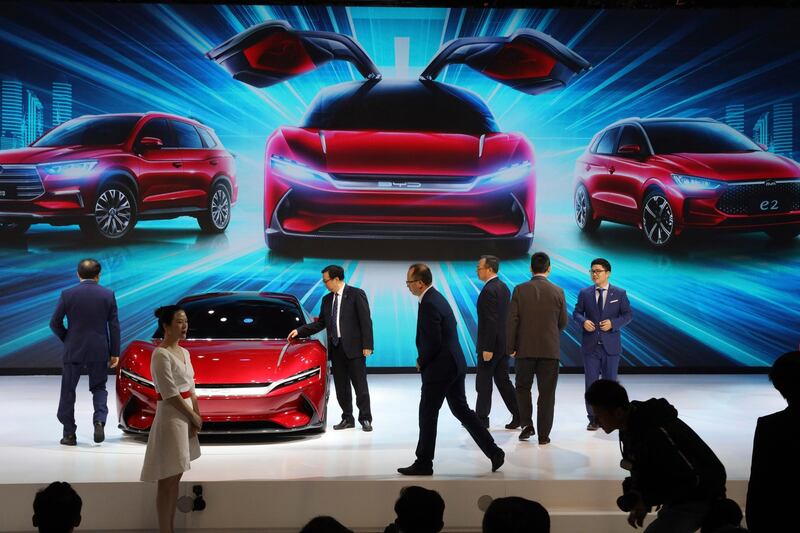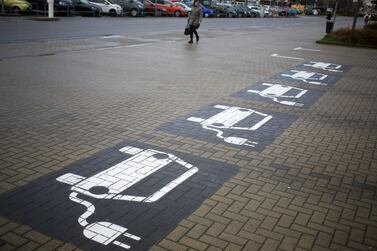BYD, the Chinese electric vehicle maker backed by Warren Buffett, will start offering a full suite of EV components to rivals and aspiring car makers to diversify its revenue sources amid sputtering demand for new vehicles.
Among the parts that the Shenzhen-based company makes and now sells are electric car batteries, powertrains and lights, founder Wang Chuanfu said in an online press conference on Sunday. BYD, China’s biggest maker of vehicles powered by alternative energy for the past six years, will use the brand name FinDreams for the parts business.
Electric car sales have been slumping in China since July, when the country reduced purchase subsidies, and the decline has been exacerbated by the coronavirus outbreak. BYD, which is financially more stable than most local EV competitors, is betting the new business will help it return to growth more quickly even as the market contracts.
“BYD will open its technology and products to the whole world,” Mr Wang said. “FinDreams units will help change the role participants in [the] Chinese auto industry play in the global new energy arena.”
BYD, founded as a mobile phone battery maker, has been growing by expanding into new businesses over the past two decades. The company started car manufacturing in 2003 and rolled out its first vehicles powered by lithium-iron-phosphate batteries in 2006. It has since added electric buses, utility vehicles, energy storage equipment, monorails and insulated gate bipolar transistors to its offering.
To help fight the spread of the coronavirus, the company expanded into face masks and reached a daily production capacity of 10 million units last week, according to Mr Wang.
The versatility of its manufacturing operations has helped BYD become self-reliant on electric car parts. Until recently it focused on making components only for itself, but the company is now looking to take advantage of a potential recovery and future growth in the market.
The annual value of batteries used in electric cars, electric buses and related energy storage is set to balloon by about 10 times to a potential $500 billion (Dh1.84bn) by 2050, according to research firm Sanford C Bernstein.
To demonstrate its competitiveness, BYD on Sunday unveiled test results of its so-called “blade battery”, touting it as a cost-competitive, safer and more compact offering. Almost all carmakers are in talks with BYD over collaboration on the product, according to He Long, the head of BYD’s car battery business.
Last year, BYD signed an agreement with Toyota Motor on EV battery supply and joint product development, with the companies setting up a jointly-owned venture this month. BYD also works with Daimler on making Denza-branded electric vehicles.






